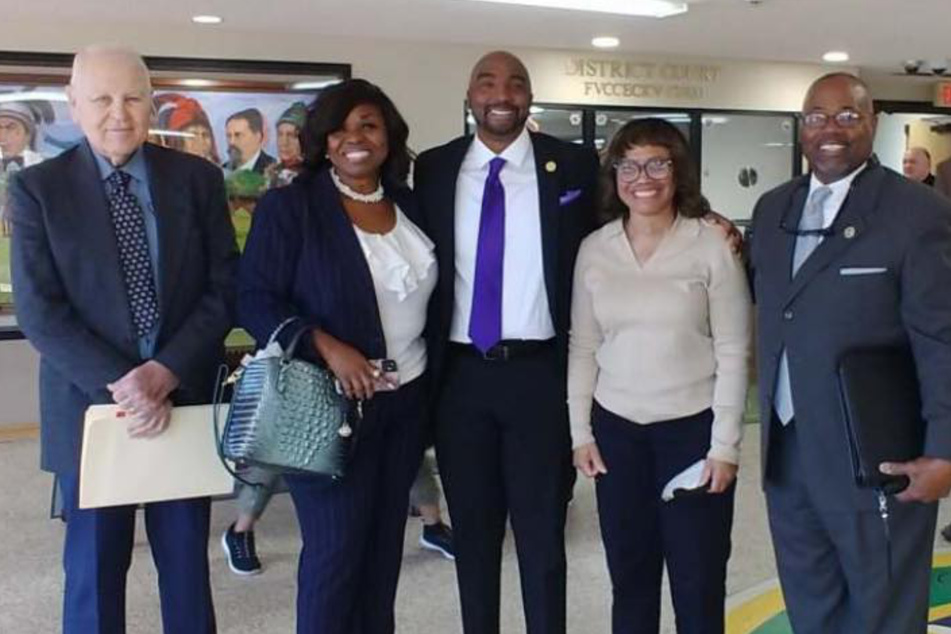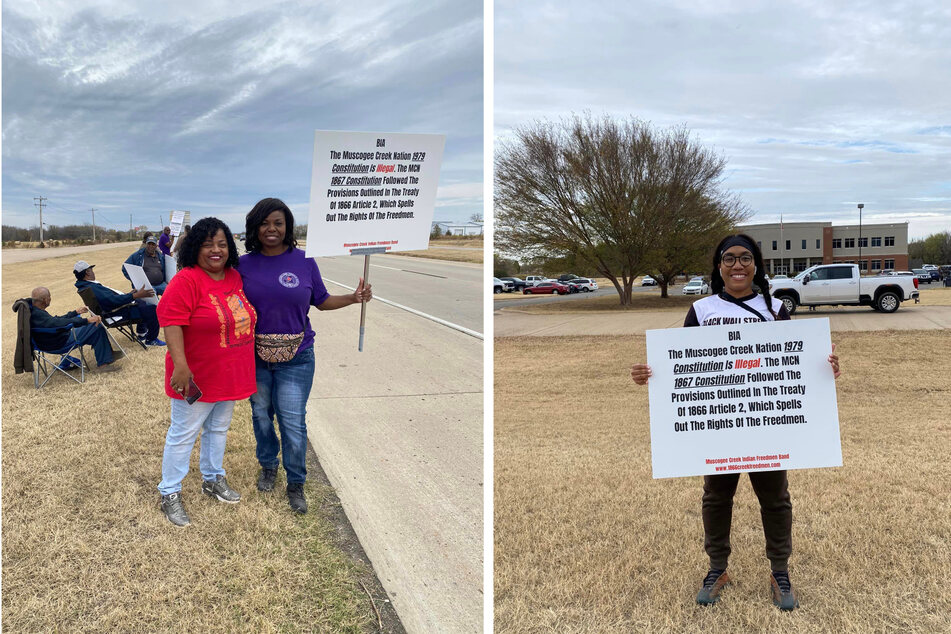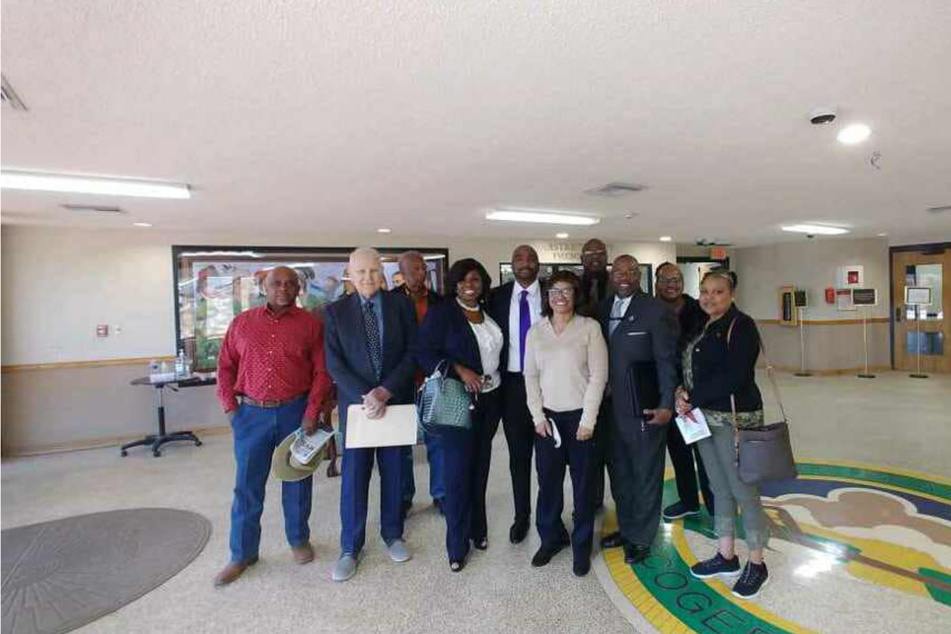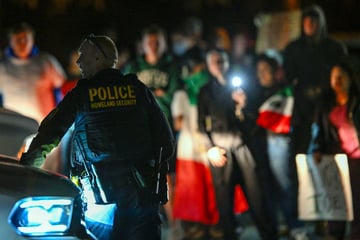Black Creeks rally for tribal citizenship rights ahead of historic court hearing
Tulsa, Oklahoma - Black Creeks rallied in the Greenwood district of Tulsa on Wednesday, the night before a historic court hearing in which they are seeking to reclaim their tribal citizenship rights in the Creek Nation.

"Who are we? Black Creeks! Who are we? Black Creeks!" the crowd chanted during the rally at the Greenwood Cultural Center.
Many of the participants trace their roots to the Muscogee Creek Freedmen, people of African descent who were either enslaved by members of the Muscogee Creek Nation, lived among the Creeks as free Blacks, or were listed on the Dawes Rolls as interracial Creeks.
The Creek Treaty of 1866 guaranteed that the Freedmen and their descendants "shall have and enjoy all the rights of native citizens," but in 1979, Black Creeks' citizenship rights were suddenly revoked. With their voting rights also went access to federally funded programs as well as recognition of their identity as Creek people.
Slamming the decision as a racist breach of their rights, Black Creeks fought back by launching a historic lawsuit to regain their full citizenship. The suit accuses the Muscogee Creek Nation of violating the Treaty of 1866.
"Treaties are the supreme law of the land, so the law is on our side," said Rhonda Grayson, chairwoman of the Muscogee Creek Indian Freedmen Band. "There's only one decision [the judge] should make, and that is to affirm the citizenship rights of the Black people known as Creek Freedmen and bring us home."
The impact of Black Creek disenfranchisement

The move to exclude Black citizens from the Creek Nation has had very real impacts on people of African descent across Oklahoma, who made lasting contributions in their communities.
Gloria Scott Island, born in 1941, sees the legacy of the Muscogee Creek Freedmen alive in her hometown of Taft, Oklahoma, where the Flipper Chapel AME Church sits on ground donated by her grandmother, Phyllis Manuel, around 1909. Manuel and Scott Island's father, Grant Perryman Scott, are listed on the census cards of Creek Freedmen.
"The dis-enrollment of the Freedmen did not change my way of life. Two of my three children attended Oklahoma State University Institute of Technology and Oklahoma University, through hard work and perseverance," Scott Island told TAG24 NEWS. "It would have been good if my children could have received education and health benefits, when the [Creek] Nation did not recognize us."
"If rights were to be restored, perhaps my grand- and great-grandchildren would reap the benefits. As we head into the hearing, I pray that honesty and justice will prevail," she said.
Black Creeks demand justice and restoration of citizenship rights

Restoring Black Creeks' access to these rights and benefits was a rallying call on Wednesday night, as members of the community came out in full force to demand justice.
Kristi Williams, chair of the Greater Tulsa African American Affairs Commission, described the disenfranchisement of Black Creeks and continued use of the label "Freedmen" as a "badge of slavery [the Creeks] are forcing us to wear."
"Creek Nation, you can't cherrypick what parts of this treaty that you want to go by," she added.
"Regardless of how we got here, enslaved or free, our people deserve the right to be who we are," agreed Damario Solomon-Simmons, the head attorney in the case who is also of Black Creek ancestry. "We want to affirm who we are and who our ancestors were and not allow you to take their work over hundreds of years – centuries – and erase it like we don't matter."
"Tomorrow, we are going to present the best case the Creek Nation has ever seen," he continued before the cheering crowd. "I'm walking in there with my ancestors, your ancestors, and we're going to walk in there with victory. We're going to be plain-spoken, stand up straight, and tell that court to give us our victory, give us our citizenship, and give us our benefits."
Black Creeks are urging supporters to #PackTheCourts ahead of their hearing at the Muscogee Creek Nation District Courthouse in Okmulgee on December 1 at 10:00 AM CST.
Cover photo: Screenshot/Facebook/Muscogee Creek Indian Freedmen Band - Black Creeks

